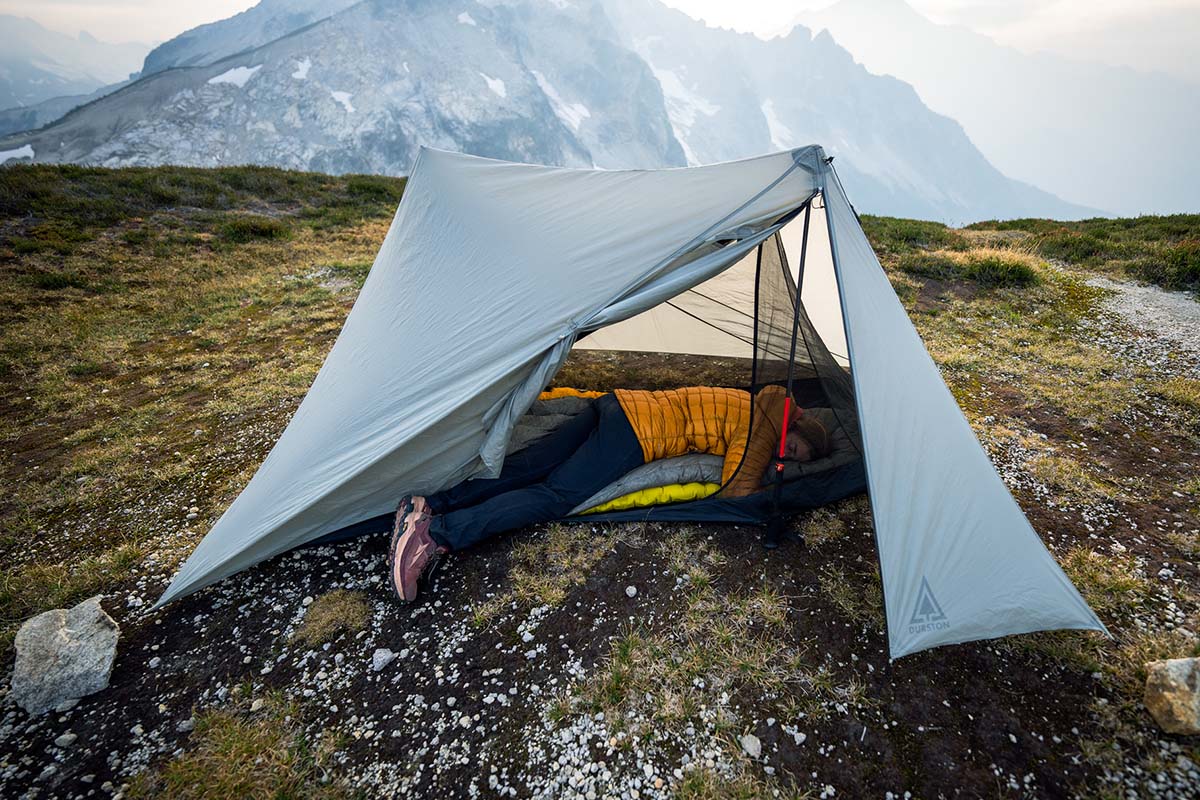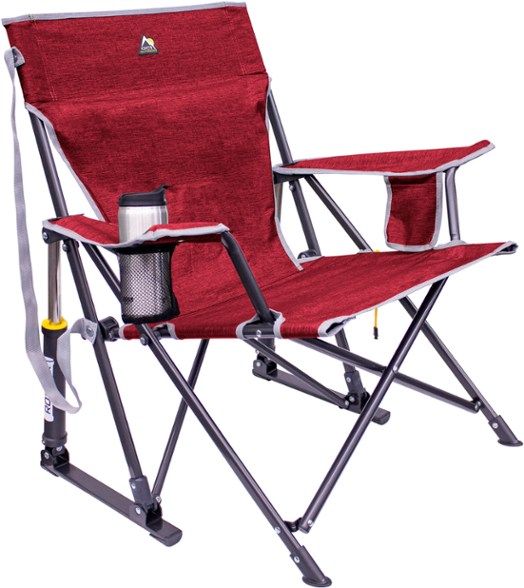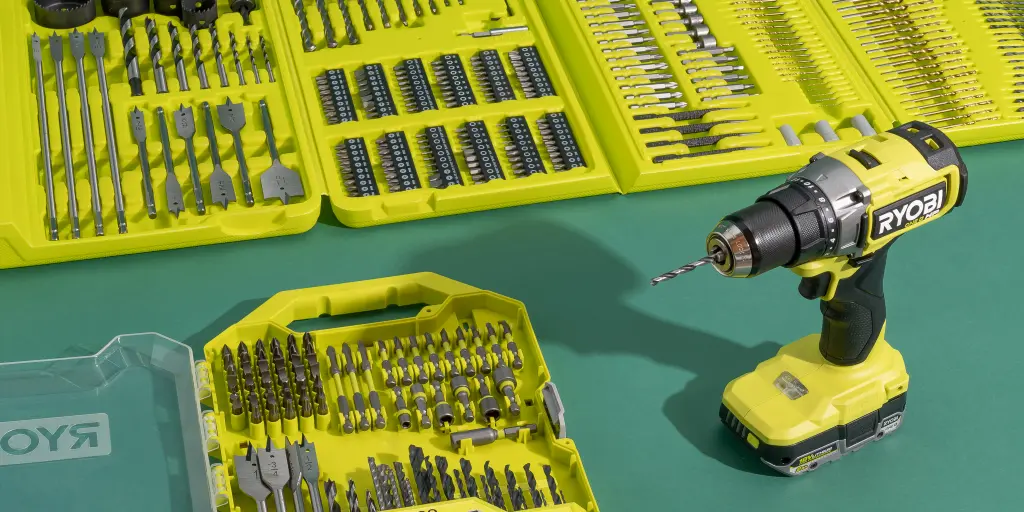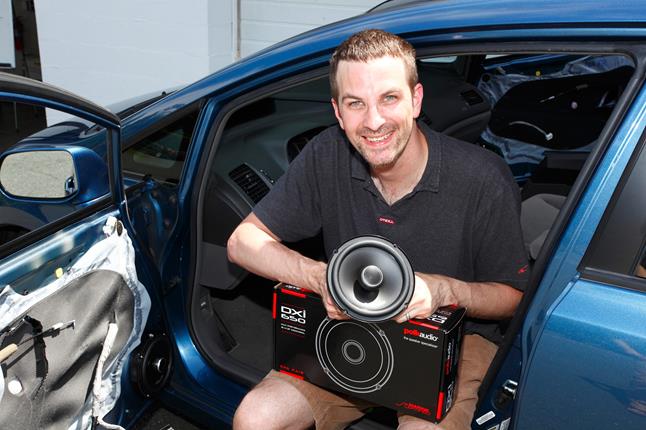1. The Joy of Camping Radio: Exploring the Wild with a Soundtrack
Picture this: you’re sitting around a cozy campfire, surrounded by towering trees rustling in the wind. The stars twinkle above, and the scent of pine fills the air. As you roast marshmallows and share stories with your friends or family, there’s something missing – the background music to complete this outdoor experience. That’s where camping radio comes in! It’s your handy companion that brings music, entertainment, and connection to the great outdoors. In this article, we’ll dive into the world of camping radio and explore how it enhances our camping adventures. So, let’s tune in and discover the joy of exploring the wild with a soundtrack!
2. A Pristine Blend: Defining Camping Radio
2.1 What is Camping Radio?
Camping radio refers to the use of portable radios or radio receivers specifically designed for outdoor use while camping, hiking, or engaging in any other outdoor recreational activities. These radios provide access to various frequencies, both AM and FM, allowing campers to enjoy their favorite radio stations even in remote wilderness or secluded camping spots. Packed with features like weather bands, emergency alerts, flashlight functions, and solar charging capabilities, camping radios go beyond simply tuning in to music or talk shows; they become an essential multi-purpose tool for campers seeking a wholesome and enjoyable camping experience.
2.2 A Bit of Background
The history of camping radio can be traced back to the early 20th century when portable radios started to gain popularity. As technology advanced, manufacturers began developing radios specifically tailored to meet the needs of outdoor enthusiasts. Initially, camping radios were bulky and relied mainly on batteries for power. However, with advancements in electronics and engineering, today’s camping radios are compact, lightweight, and feature-packed, making them easily portable and convenient for campers of all ages and experience levels.
3. Enhancing the Camping Experience: Why Camping Radios Matter
3.1 Fostering a Sense of Connection
In today’s digital age, where we are constantly tethered to our smartphones and immersed in virtual experiences, camping radio offers a refreshing break from the fast-paced connected world. It reconnects us with the simplicity of nature and helps create a bond with our surroundings. As we listen to the sounds of crackling fire, chirping birds, and the distant rustle of leaves, camping radio bridges the gap between the serenity of nature and the comfort of familiar sounds, enhancing the overall camping experience.
3.2 Entertainment and Education on the Go
When the sun sets and darkness envelopes the campsite, camping radio keeps the fun going. With a wide range of stations available, campers can tune in to their favorite music genres, catch up on the latest news, or enjoy entertaining talk shows. Moreover, camping radios often include weather bands, helping us stay informed about any potential changes in the weather forecast, essential for planning outdoor activities and ensuring our safety. It also promotes learning opportunities by enabling access to educational stations or podcasts, allowing campers to expand their knowledge while surrounded by nature’s classroom.
3.3 Emergency Preparedness
While camping is all about relaxation and escaping the hustle and bustle of everyday life, it’s essential to be prepared for any unexpected situations. Camping radios often come equipped with NOAA (National Oceanic and Atmospheric Administration) weather channels, providing vital weather updates and emergency alerts. These alerts can warn campers about impending severe weather, flash floods, or other emergencies, giving them valuable time to take necessary precautions and ensure their safety. In remote areas where cell phone signals might be weak or non-existent, camping radios become invaluable lifelines, capable of summoning help when needed.
By introducing camping radio, we can truly enhance our camping adventures, creating memorable experiences, and staying connected with the wild and each other. With its portability, versatility, and safety features, camping radios are more than a simple accessory – they become our trusted companions, transforming our camping expeditions into well-rounded sensory journeys. So, why miss out on the joy of camping with a soundtrack when you can tune into nature’s frequencies with a camping radio? Let’s explore the endless possibilities it brings!
4. The Benefits of Camping with a Radio
4.1 Stay Connected with the Outside World
Picture this: you’re out in the wilderness, surrounded by nature’s beauty, and completely disconnected from the hustle and bustle of everyday life. While this may sound like a dream for some, there might be instances where staying connected becomes essential. Having a camping radio allows you to remain updated on important news, weather forecasts, and emergency alerts. It’s like having a lifeline to the real world, ensuring you’re prepared for any sudden changes in weather or unforeseen circumstances.
4.2 Entertainment and Relaxation On-the-Go
Camping is all about embracing the serenity of the great outdoors, but sometimes a little entertainment goes a long way. With a camping radio, you can enjoy music, podcasts, and even listen to your favorite talk shows while lounging by the campfire or relaxing in your tent. It’s a fantastic way to unwind after a day of outdoor activities, letting you tune in to your favorite entertainment wherever your campsite may be. Plus, sharing music and stories around the campfire can create memorable moments that contribute to the overall camping experience.
4.3 Enhancing Safety and Security
When you’re out exploring nature, safety should always be a top priority. A camping radio can assist in ensuring your security during your outdoor adventures. In case of an emergency, you can use it to broadcast distress signals and communicate with others who may be nearby. Additionally, some camping radios offer built-in flashlight features, which can be incredibly useful during nighttime activities or if you find yourself in need of some extra illumination.
5. Choosing the Right Camping Radio
5.1 Portable and Compact Designs
When it comes to camping radios, portability is key. You want a radio that won’t weigh you down or take up too much precious space in your backpack. Look for compact designs that are lightweight and easy to carry. Consider radios with built-in handles or clips for convenient attachment to your gear, ensuring it won’t easily get lost or damaged while on the move.
5.2 Durability for the Outdoors
The great outdoors can be a rugged and unpredictable environment, so it’s important to choose a camping radio that can withstand the elements. Look for radios that are weatherproof, shock-resistant, and dustproof. Opt for models with sturdy enclosures made from durable materials like rubber or plastic. This way, your radio can handle accidental drops, splashes, dirt, and grime without skipping a beat.
5.3 Battery Life and Power Options
One of the most critical aspects of a camping radio is its power source. While some radios rely solely on batteries, others offer multiple power options. Consider radios that have long battery life or rechargeable batteries, as they can provide extended usage without the need for frequent replacements. Additionally, radios with alternative power options such as solar panels, hand cranks, or USB charging are valuable for recharging in the wilderness, where electricity may not be readily available.
6. Operating Your Camping Radio
6.1 Familiarize Yourself with the Controls
Before you head out on your camping adventure, take some time to familiarize yourself with the controls and features of your camping radio. This will ensure that you’re fully prepared to operate it efficiently and take advantage of all its capabilities while you’re enjoying the great outdoors. Read the user manual, experiment with the different buttons and knobs, and understand how to switch between various modes or frequencies.
6.2 Tune in to Local Stations
Once you’ve mastered the controls, it’s time to start tuning in to some stations. Use the scanning feature on your camping radio to automatically search for available frequencies in your area. Depending on your location, you might discover local news, weather, and even music stations. Don’t forget to mark the frequencies you like the most for quick access later on. Remember, every camping spot may have different reception, so finding the perfect spot for optimal reception might require a little exploration.
6.3 Extend Reception Range with Antennas
If you find yourself in an area with weak reception or struggling to pick up your desired channels, consider using an external antenna. Many camping radios have built-in antennas, but attaching an external one can significantly improve your reception range and signal strength. Experiment with different antenna positions and orientations to find the best signal possible. Just like adjusting your tent’s position for a better night’s sleep, repositioning your antenna can make a world of difference in radio reception.
Now that you’re equipped with knowledge about the benefits of camping radios, how to choose the right one, and operating tips, you’re ready to fully embrace the experience of camping with this essential tool. Lace up those hiking boots, pack your camping gear, and don’t forget to bring your trusted camping radio along for the journey!
7. Finding Alternatives: Camping Without a Radio
Exploring Other Entertainment Options
So, you’ve decided that a camping radio may not be your cup of tea. That’s okay! Camping is all about experiencing the great outdoors in different ways. Here are some alternative options you can consider to keep yourself entertained while you’re out in the wilderness:
1. Podcasts and Audiobooks: If you’re someone who enjoys storytelling or learning something new, podcasts and audiobooks are perfect for you. With a vast range of genres and topics available, you can find something that suits your interests and keeps you engaged during those quiet moments at camp.
2. Board Games and Cards: Sometimes, all you need is some good old-fashioned fun with family and friends. Pack a few board games, a deck of cards, or even a portable puzzle to enjoy some quality time together. These activities promote bonding and can bring out some friendly competition, making your camping trip memorable.
3. Outdoor Activities: Make the most out of your camping trip by exploring the natural wonders around you. Go hiking, fishing, swimming, or simply take a leisurely walk to soak in the beauty of your surroundings. Engaging with nature can be a rewarding experience that allows you to connect with your surroundings minus the distractions of technology.
The Pros and Cons of Going Radio-Free
While a camping radio can enhance the overall experience, going without one also has its perks. Let’s weigh the pros and cons of ditching the radio:
Pros:
– Immersion in Nature: Without a radio, you have the opportunity to fully immerse yourself in the tranquility of nature. You can listen to the soothing sounds of the wilderness, like the rustling leaves and chirping birds, which can provide a sense of peace and relaxation.
– Unplugging from Technology: Camping is a chance to disconnect from the digital world and embrace a simpler lifestyle. Leaving the radio behind helps you break away from constant communication and allows you to appreciate the beauty of the natural environment without distractions.
Cons:
– Limited Access to Information: If you rely on the radio for news, weather updates, or emergency alerts, going without one might leave you feeling disconnected from the outside world. Make sure you have alternative sources of information or a backup plan in place to stay informed.
– Evening Entertainment: While the daytime can be filled with outdoor activities, evenings at the campsite may call for downtime and relaxation. Without a radio, you might miss out on the option of enjoying some light music or storytelling under the stars.
8. Comparing Camping Radios: Making an Informed Choice
Features to Consider
To find the perfect camping radio that aligns with your needs, it’s essential to consider certain features. Here are a few key factors to keep in mind when comparing different options:
1. Durability: Since camping often involves exposure to the elements, ensure that the radio you choose is built to withstand rough conditions. Look for radios with water-resistant or weatherproof features, sturdy construction, and durable materials.
2. Battery Life: A long-lasting battery is vital to keep your radio running throughout your camping adventure. Opt for radios with extended battery life or consider models that offer alternative charging options such as solar power or hand cranking.
3. Reception and Range: Depending on where you’re camping, the quality of radio reception may vary. Look for radios with excellent reception capabilities and a range suitable for the areas you plan on exploring. Some radios even come with shortwave or NOAA weather channels for added convenience.
4. Size and Portability: Considering the limited space available in camping gear, it’s essential to choose a radio that is compact and lightweight for easy transportation. Look for radios that can be conveniently packed into your backpack or strapped to your belt.
5. Additional Features: Some camping radios come equipped with extra features such as built-in flashlights, SOS signaling capabilities, USB ports for charging devices, and even Bluetooth connectivity. Assess your specific requirements and prioritize the features that would enhance your camping experience.
Popular Camping Radio Brands
Now that you know what to look for, let’s explore a few popular brands that offer reliable and high-quality camping radios:
1. Sangean: Known for their durable construction and excellent reception, Sangean radios are a popular choice among campers. They offer a wide range of models with various features to suit different preferences.
2. Eton: Eton radios are renowned for their innovation and versatility. From solar-powered radios to rugged and weatherproof options, Eton provides a vast selection tailored for outdoor enthusiasts.
3. Midland: Midland specializes in portable radios with advanced weather scanning capabilities. They are especially popular among campers who prioritize staying informed about weather conditions.
9. Embrace the Great Outdoors with Your Trusty Camping Radio
Let the Radio Enhance Your Camping Adventures
As you embark on your camping journey, consider bringing a radio along to amplify your experience. Connect with the soothing sounds of nature or tune in to your favorite music as you gather around the campfire. A camping radio provides a reliable source of entertainment, information, and even a lifeline in case of emergencies.
Remember, camping radios are versatile and customizable, making them suitable for a range of preferences. Whether you prefer lightweight and compact models or radios with additional features, there’s a perfect fit for every camper.
So, select the ideal radio and embark on an adventure like never before. Let the radio become your steadfast camping companion, enriching your outdoor experience while you create lasting memories with loved ones.
Unplug from the digital world, embrace the simplicity of nature, and let your camping radio be the soundtrack to your wilderness escapades. Happy camping!
Frequently Asked Questions
1. Why do I need a camping radio?
A camping radio is an essential tool for any outdoor enthusiast. It allows you to stay connected to important weather updates, emergency notifications, and local news while you’re in the wilderness. It can also provide entertainment during downtime, keeping you entertained with your favorite FM/AM stations or even your own music through built-in Bluetooth or MP3 capabilities.
2. What features should I look for in a camping radio?
When choosing a camping radio, consider features like weather alerts, rechargeable batteries, solar panel charging options, durability, water resistance, and lightweight design for easy portability. Look for radios with multiple power sources, such as hand crank or USB charging, to ensure you have an energy-efficient backup plan.
3. Can a camping radio receive signals in remote locations?
Yes, most modern camping radios are equipped with powerful antennas and can receive signals even in remote locations. However, the range and signal strength may vary depending on the terrain and the radio’s capabilities. Consider radios with long antenna lengths, high-gain receivers, and even shortwave frequencies if you plan to be in extremely remote areas.
4. Can a camping radio be used as a power bank for charging devices?
Some camping radios have a built-in power bank feature that allows you to charge small devices like smartphones, tablets, or GPS devices. Check the product specifications to ensure the camping radio you choose has this capability if charging devices on the go is important to you.
5. Are there any limitations to using a camping radio?
While camping radios are incredibly useful, they do have a few limitations. In areas with poor radio reception or heavy interference, you may experience reduced signal quality. Additionally, if you plan to use your camping radio for extended periods without access to power sources, it’s important to have spare batteries or alternative charging options like solar panels to keep it powered.















